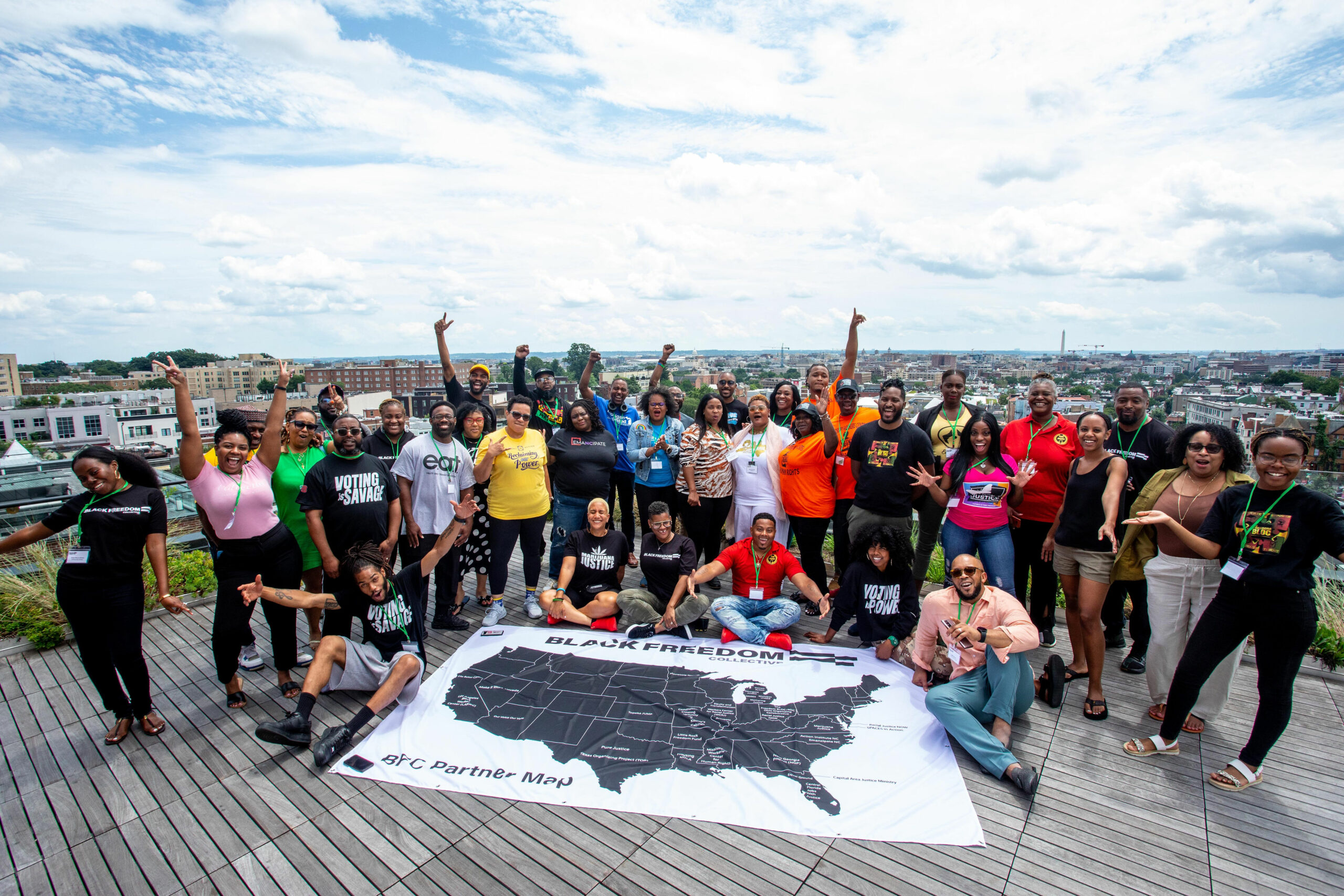Black Freedom Collective: A Family Reunion to Remember

Reparations, Black joy, and organizational development were some of the focal points of the Black Freedom Collective (BFC) 2022 Family Reunion.
The collective, composed of 29 partners from across the country, convened in Washington, D.C. at the end of July to reconnect, push for transformational change and celebrate their wins while being their authentic selves with fellow Black change leaders. Though a hybrid option was provided for inclusivity, the in-person meet up was a refreshing experience after two and half years of virtual meetings prompted by the pandemic.
“We were able to network and get to know one another. I think that’s what’s always been missing,” shared Alonzo Waheed, Director of organizing for E.A.T. Chicago. “I was able to walk away with real relationships. I was able to pick the phone up and say hey we need some support and individuals showed up.”
The Family Reunion was birthed out of the desire of BFC members to reach collective action on issues that matter to them through a team composed of and led by them. As a result, BFC’s first steering committee was formed during the retreat and will collaborate with the existing F.U.L.L. committee to build capacity and resources for partners. This September, the steering committee will build out a roadmap to put the five commitments into action.
During our convening, conversations kept coming back to the importance of reparations and their power to heal Black communities–mirroring the conversations happening across the nation, too. Jacinda Cason with Michigan Voices believes reparations start with fundraising. “We understand that philanthropic dollars don’t come to Black-led organizations,” shared Cason referencing a recent study.
“That should be expected…they want to give to white people’s issues and not Black people’s issues. They want to solve the white problems and put a band aid on the Black problems. We are systematically held out of opportunities…so when I’m thinking about reparations I’m thinking about being healed wholly and not just partly.”
Jacinda Cason
Erika Washington, Executive Director of Make it Work Nevada, believes that uplifting authentic Black stories is one way to obtain health reparations for Black communities. “I think we all know that these issues are happening but we don’t have tangible conversations,” she shared. “Everyone can’t come out and protest but we can certainly get people on video. We can certainly figure out how we can have that narrative where people hear what’s happening and that we are investing in our communities so they don’t feel further marginalized but that they feel heard”.
“I think we should have a deep educational phase on this,” shared Waheed, a fellow member of the newly formed committee. “Even our own brothers and sisters are saying not everyone should get reparations money… but we have to deal with self care, deal with self hate, and understand that both of those are by-products of white supremacy.”
A sense of community energized partners as they met in breakout groups each day to discuss revolutionary solutions to shared challenges like community safety, healthcare, affordable housing, and canceling student debt.
When addressing safety for Black communities, reimagining power distribution is the first step to change.“ As an abolitionist, I noticed overall in the BFC there is a need to understand how we define safety and what that could look like,” said Chelsea Higgs Wise, Executive Director of Marijuana Justice. “Everyone’s demand was to decrease the power of law enforcement so what does that mean overall for our safety?”
This September, the steering committee will build out a roadmap to put the five commitments into action. During the July retreat, a large part of the success was due to the in-person factor, so BFC partners will again meet face to face to create a space of vulnerability and transparency when discussing solutions. A focus will be placed on empowering BFC organizations to mobilize for change through policy and advocacy, base building, healing justice, fundraising, and communication strengthening.